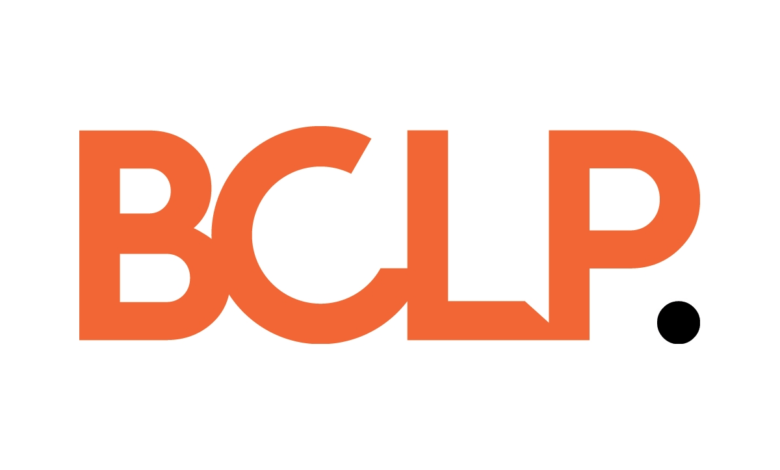Foreign Direct Investment: Key Recent and Future Developments in Europe and the US | BCLP

SUMMARY
At a time of significant geopolitical challenges, many jurisdictions are looking at their investment screening regimes to ensure that they can adequately safeguard national security and public order. Within this context, there have been – or will likely soon be – significant changes to FDI regimes across the world. In this article, BCLP’s experts in Brussels, Hamburg, London, Paris and Washington DC explore current or forthcoming amendments to the FDI regimes in France, Germany, the United Kingdom, the United States and the European Union.
Strengthening inbound investment screening
In response to growing national security concerns, many jurisdictions are sharpening their screening regimes – primarily through capturing more types of investment.
France
One of the key Covid-era temporary amendments to the French FDI regime – the 10% notification threshold for investments made by non-EU and non-EEA investors in listed companies – has been made permanent (although it is worth noting that this lower threshold benefits from a fast-track scheme, which is not available for acquisitions that trigger the 25% threshold). Furthermore, the types of target businesses that fall within scope of the regime have been expanded to include unincorporated branches of foreign companies that are registered in France.
Furthermore, France has increased the sectors caught by the regime to include prison security and the integrity, safety or continuity of the extraction, processing and recycling of critical raw materials. The amended regime also captures research and development activities in photonics and low-carbon energy production technologies.
Germany
Germany is also considering lowering its jurisdictional FDI screening thresholds, which are currently 10%, 20% and 25% – depending on the target’s activities. In addition, there are proposals to widen the scope of the regime to include acquisitions of the intellectual property of a German business, including patents and licence transfers. Greenfield investments and research projects could also come within the scope of the regime where these relate to high-tech or critical infrastructure sectors.
There are also proposals to amend the definitions of the sectors that are already within scope of Germany’s FDI regime. This could result in more businesses being subject to notification obligations – particularly those involved in semiconductor manufacturing, cloud computing, autonomous driving and flying, cyber security and raw materials.
United States
The United States has been bolstering its regulation of inbound investment, with new guidance issued by CFIUS and the prospect of forthcoming regulations that could have significant implications for FDI screening.
In 2023, CFIUS issued guidance confirming that it will continue to require information on the identities of, and the rights held by, the limited partners of private equity funds. It also released guidelines on the enforcement of procedural infringements and non-notified transactions, and associated penalties – indeed, in the latter half of 2023 Assistant Secretary for Investment Security Paul Rosen announced that CFIUS was on track issue its highest ever number of civil monetary penalties in a year.
In addition, Assistant Secretary Rosen announced that CFIUS intends to issue new regulations to refine its review process – including in relation to enforcement, penalties, the treatment of non-notified transactions and CFIUS’ ability to respond to the current threat landscape.
Furthermore, on 28 February 2024 President Biden issued an executive order aimed at protecting the personal information of US citizens. Among other measures, the executive order directs the Department of Justice (“DOJ”) to enact regulations to restrict certain transactions involving bulk sensitive personal data or US government-related data where there is a risk of access by countries of concern (which are expected to be China, Russia, Iran, North Korea, Cuba, and Venezuela).
The trend towards greater FDI scrutiny in the United States is borne out in the filing statistics. CFIUS’ most recent annual report (relating to 2022) notes that it reviewed record numbers of notices, and there was a decrease in the number of declarations resulting in clearance.
United Kingdom
While many jurisdictions are expanding their FDI regimes, the UK government is considering paring back its National Security and Investment Act (“NSIA”) regime – having received 1,066 notifications in the regime’s first two years of operation. In November 2023, the UK Government issued a call for evidence in which it proposed limiting or even removing some of the types of transactions that are currently caught by the NSIA, including certain (i) internal reorganisations, (ii) appointments of liquidators, receivers and administrators, (iii) lending arrangements, and (iv) acquisitions by public bodies.
The UK Government has also proposed narrowing and clarifying the definitions of some of the sectors of the economy that are subject to mandatory screening (such as AI and defence), whilst expanding other definitions and creating new stand-alone sectors (notably for semiconductors and critical minerals).
European Union
In January 2024, the European Commission adopted five initiatives to strengthen the EU’s economic security. These include a legislative proposal that would require all Member States to have an investment screening regime, and would set a minimum sectoral scope for Member States’ screening regimes. Under the proposal, all Member States would have to screen foreign investments in EU businesses that (i) participate in EU projects and programmes that are relevant for security and public order, and (ii) are active in critical areas, such as semiconductors, artificial intelligence, critical medicines and dual-use and military items.
outbound investments receive increasing scrutiny
Although many FDI regimes have focused on inbound investment, we are beginning to see greater attention paid to outbound direct investment (“ODI”) – i.e. businesses investing or expanding their activities/technologies overseas. This is driven in part by certain governments’ concerns that businesses within their jurisdictions might invest in specific military or security supply chains in hostile countries.
There have been recent developments regarding ODI screening in the EU, UK and US. Indeed, the UK and the US published a joint statement titled the Atlantic Declaration on 8 June 2023, central to which was a shared objective that UK and US companies’ capital and expertise are not to be used to enhance the military and intelligence capabilities of third countries of concern.
United States
In August 2023, President Biden issued an executive order authorizing the regulation of certain outbound investments from the US. Such regulations would prohibit certain transactions and require the notification of others. The focus would be on transactions involving entities located in or subject to the jurisdiction of “countries of concern,” in particular China, that relate to identified technologies and products that may present a threat to national security – notably semiconductors and microelectronics, quantum information technologies, and artificial intelligence.
Concurrently, the US Department of the Treasury issued an advanced notice of proposed rulemaking (“ANPRM”) seeking comments from industry on the proposed regulations. The ANPRM sets out the Treasury’s intended framework for implementing the regulations – including the countries which will be “of concern” and the sub-sets of technologies and products within the three categories identified in the executive order that are likely to be addressed in the final regulations.
United Kingdom
Although there is not yet any concrete guidance on screening ODI in the UK, the UK government reiterated in its call for evidence that the NSIA regime can apply to ODI – and it sought feedback on whether specific guidance in respect of ODI would be welcome. Therefore, it seems likely that there will be further developments – and possibly guidance – in respect of ODI screening in the UK.
European Union
ODI is neither monitored nor controlled by the EU or its Member States. As part of its broader review of the EU’s economic security toolkit, the European Commission is exploring the risks associated with ODI. In particular, it is hoping to understand the types of investments in certain critical technologies that are made from the EU, whether such investments might effectively put EU or Member State security at risk and, if so, how far such risks can be mitigated – and whether such mitigation would require a new policy or framework. The Commission anticipates that it will reach a view on whether a new policy is required during 2025.
Member States will be monitoring the Commission’s work on ODI, with Germany already announcing that it is waiting for the outcome of the EU-level review before considering whether corresponding domestic measures are required.
significant differences remain between fdi regimes
There is, unsurprisingly, significant divergence in the transactions caught by jurisdictions’ FDI regimes. Peculiarities exist in the application of a number of regimes – although the European Commission’s legislative proposal for FDI screening could lead to increased harmonisation amongst EU Member States. We highlight a few of these peculiarities below.
For instance, the UK’s NSIA regime is ‘investor agnostic’, meaning that qualifying transactions made by UK acquirers are also subject to notification requirements. In this regard, the NSIA is not really a foreign direct investment regime. Indeed, in its 2022-23 Annual Report on the NSIA regime, the UK government noted that investments by UK acquirers accounted for approximately 58% of all accepted notifications, and 33% of all call-ins (where an acquisition may give rise to a risk to national security) – second only to Chinese investors.
In Germany (as in many jurisdictions), the burden of proof (Beweislastumkehr) for determining whether to intervene in an investment is on the German authority, the Federal Ministry for Economic Affairs and Climate Action (BMWK). However, for security-related investments there is a proposal to reverse this burden of proof, meaning that an acquirer would need to convince the BMWK that a particular investment does not relate to or impact national security. It remains to be seen how such a reversal of the burden of proof would affect the information required to make a FDI notification – and, perhaps more importantly, how it might impact the ability for acquirers to secure FDI clearance in Germany for security-related investments.
The French government appears to be more inclined than many others to issue conditional FDI clearances. In 2023, more than half of the FDI authorisations issued in France were subject to conditions, whereas across the EU as a whole only 9% of approvals were conditional.
FDI – and increasingly ODI – screening regimes are important, and potentially tricky, regulatory obstacles for businesses to overcome for their M&A activities.
The authors would like to thank: Nick Young, Tonio Sadoni, Julie Catala Marty, Andrew Hockley, Victoria Newbold, David Anderson.
[View source.]Source link





